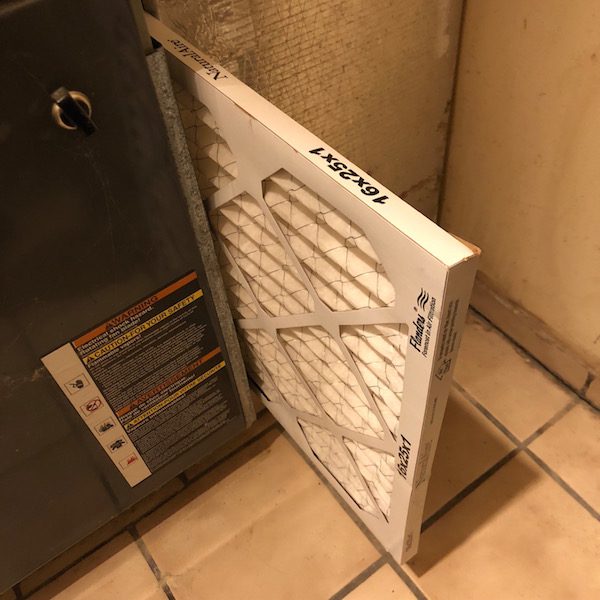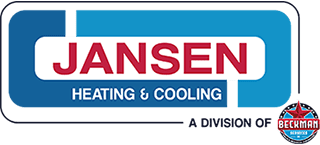What Issues can a Dirty Air Filter Cause with Your Furnace?

A dirty air filter can cause issues with your furnace and lead to compromised performance and efficiency.
Here are the primary ways a dirty air filter can lead to problems:
- Reduced Airflow: As the air filter collects dust, dirt and debris over time, it becomes clogged. This obstruction restricts the flow of air through the filter and into the furnace.
- Overheating: Restricted airflow can cause your furnace’s heat exchanger to overheat. When it gets too hot, it can crack or become damaged.
A cracked heat exchanger can lead to the release of carbon monoxide (CO) into your home, which is extremely dangerous.
- Inefficient Heating: With less airflow, your furnace may struggle to heat your home effectively. It will take longer to reach the desired temperature, and you may notice uneven heating throughout your home.
- Increased Energy Bills: A clogged air filter forces the furnace to use more energy to maintain the same level of heating. This increased energy consumption can result in higher heating bills.
- Short Cycling: A dirty air filter can cause your furnace to cycle on and off too frequently. This not only wastes energy, but puts additional stress on the furnace’s components, potentially leading to premature wear and tear.
- Reduced Indoor Air Quality: An air filter’s primary job is to remove airborne particles and allergens from the air. When it’s dirty, it becomes less effective, which can lead to reduced indoor air quality, potentially causing respiratory problems and allergies for occupants.
- Increased Maintenance Costs: A dirty air filter can lead to more frequent maintenance and repair needs for your furnace. Over time, it can contribute to the deterioration of the blower motor and the heat exchanger, resulting in costly repairs or even the need for a premature furnace replacement.
To prevent these issues, regularly inspect and change or clean your air filter as recommended by the manufacturer or your trusted Cincinnati furnace repair professional.
The frequency of filter changes varies, but a general guideline is to check your filter monthly and replace it every 1 to 3 months, or as needed.
Determining the Right Filter for Your Furnace
Your Cincinnati heating service repair partner can help you decide the right filter for your system if you are unsure, but here are some Jansen Heating & Cooling tips:
- Check Your Furnace’s Requirements:
Refer to your furnace’s owner’s manual or check the existing filter to determine the size and type of filter that your furnace requires. Filters come in various sizes, and it’s crucial to get the right dimensions to ensure a proper fit.
- Understand Filter Types:
There are several types of furnace filters available, each with different filtration capabilities:
- Fiberglass
- Pleated F
- High-Efficiency
- HEPA
- Consider Your Indoor Air Quality Needs:
If you have allergies or respiratory issues, or if you live in an area with high levels of pollutants, you may want a filter with a higher MERV rating or consider a HEPA filter for improved air quality.
- Assess Your Budget:
Higher-quality filters, such as HEPA or high-efficiency filters, area more expensive upfront. Consider your budget when choosing a filter, but also keep in mind the long-term benefits of improved air quality and potentially lower energy bills.
- Balance Filtration with Airflow:
While higher MERV-rated filters provide better filtration, they can also restrict airflow. It’s essential to strike a balance between filtration efficiency and adequate airflow.
- Check Filter Replacement Frequency:
Filters have varying lifespans depending on their type and usage. Some need replacement every month, while others can last up to six months or more. Choose a filter that aligns with your maintenance schedule.
